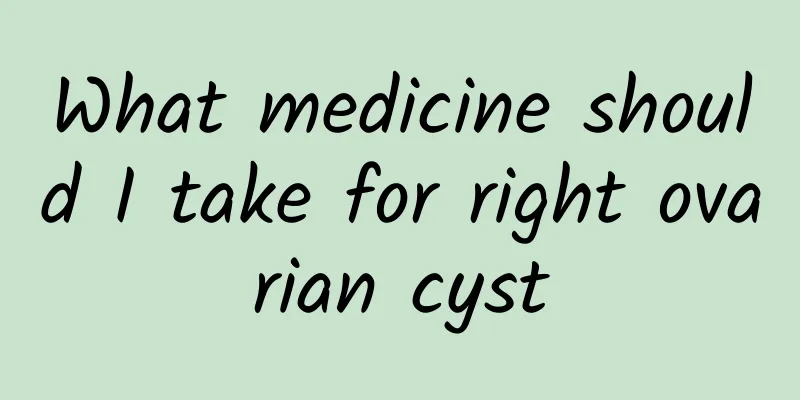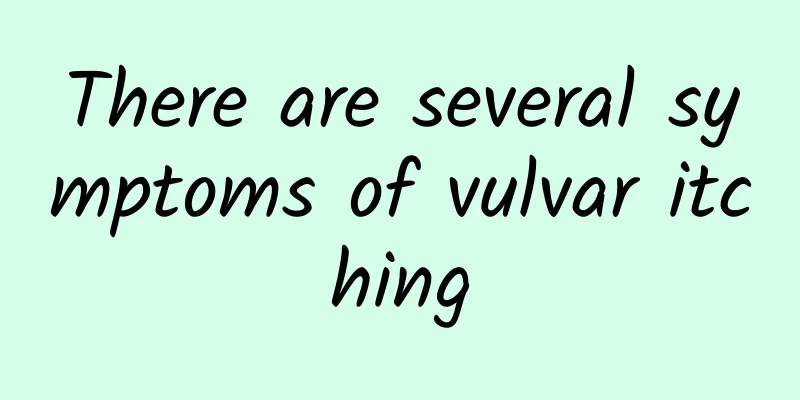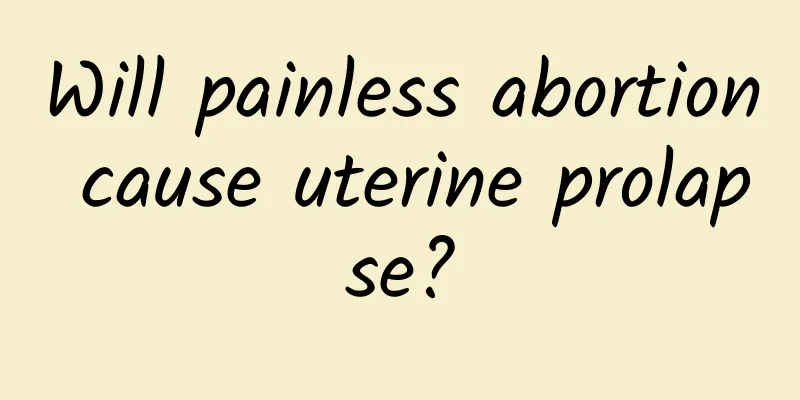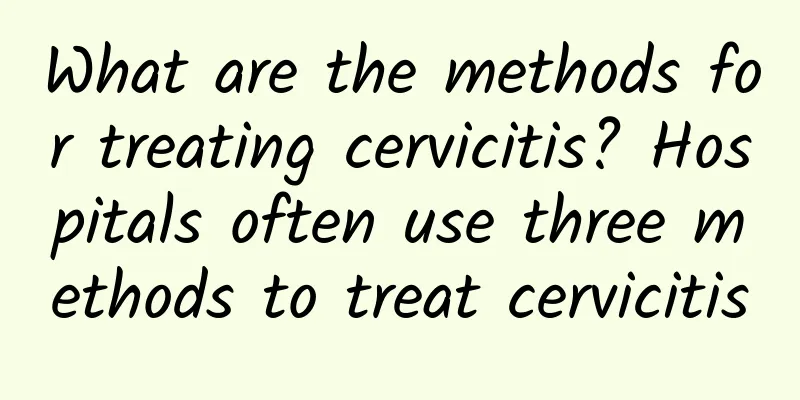What medicine should I take for right ovarian cyst

|
The treatment of right ovarian cysts needs to be determined according to the nature, size and symptoms of the cyst. Drugs are usually suitable for functional cysts. Commonly used drugs include oral contraceptives, progesterone drugs and ovulation-inducing drugs; but if the cyst is large, the symptoms are severe or it is a non-functional lesion, further examination or even surgical treatment is required. 1. Drug treatment options If the right ovarian cyst is a functional cyst such as a corpus luteum cyst or a follicular cyst, medication may be effective. The following are commonly used medications: Oral contraceptives: By inhibiting ovulation, they can reduce the formation of new functional cysts and help relieve existing cysts. Progestogen drugs: effective in regulating hormone levels, used to shrink cysts and relieve menstrual disorders. Gonadotropin-releasing hormone antagonists GnRH inhibitors: reduce estrogen levels and reduce the development of functional ovarian cysts. Before using the medicine, you must do so under the guidance of a doctor and adjust the intensity and duration of the medicine according to the efficacy and side effects. 2. Dietary supplementation Diet is not a direct treatment for ovarian cysts, but it can play an auxiliary role in conditioning. The following are recommended dietary choices: High-fiber foods: such as fresh vegetables, whole grains and fruits, help regulate hormone levels in the body. Foods rich in antioxidants, such as blueberries, green tea, and spinach, can help reduce inflammation. Reduce the intake of high-fat and high-sugar foods: may reduce the impact of adverse metabolism on the ovaries. 3. Precautions and further inspections If the cyst is larger than 5 cm, persists, or is accompanied by obvious symptoms such as abdominal pain and menstrual disorders, you need to be alert to pathological cysts such as endometriosis cysts and ovarian tumors. The following examinations may be required: Imaging examination: such as ultrasound examination, to clarify the nature and location of the cyst. Blood marker test: such as CA125 test, to assess whether it is a malignant cyst. Surgical treatment: If medication is ineffective, minimally invasive surgery such as laparoscopic removal can be considered, which can provide both treatment and biopsy. If you have been diagnosed with right ovarian cysts, you should consult a doctor in time to confirm the specific treatment plan. Do not take medication on your own or delay treatment. Reasonable drug treatment and a healthy lifestyle jointly protect women's health. Before implementing any treatment, you need a doctor's guidance and close monitoring. |
<<: What causes uterine fibroids?
>>: What causes threatened miscarriage?
Recommend
Brief analysis of common symptoms of tuberculous pelvic inflammatory disease
Many people may know about tuberculous pelvic inf...
What is the difference between pelvic inflammatory disease and endometritis?
Although pelvic inflammatory disease and endometr...
Water bottles can also help you lose weight! Kenji Wu takes high school girl to "Ledong"
A survey shows that high school girls exercise fo...
Mature women with diabetes have excessive waist circumference and difficulty controlling blood sugar
Is it okay if I have a normal weight? Be careful ...
What causes miscarriage at 5 months of pregnancy? How to prevent miscarriage in pregnant women?
Pregnant women need to protect their bodies durin...
What should patients with adenomyosis pay attention to after pregnancy
Adenomyosis is a difficult gynecological disease ...
Why does uterine effusion occur?
Many female friends often have uterine effusion a...
What snacks can you eat without getting fat? Banana Yogurt Wins
[Key Points]: For girls, snacks are a big temptat...
Weight loss savior! 5 great sandwich fillings that won’t make you fat
Sandwiches are delicious and convenient, but if y...
The most common typical symptoms of vaginitis
Vaginitis is one of the most common gynecological...
Zheng Duoyan created a new dumbbell exercise, which can help you lose 20 kg in just 3 moves! Say goodbye to butterfly sleeves and slim arms
Zheng Duoyan, the fitness queen who is popular in...
To prevent fatty liver, should we eat less white rice and white flour? Nutritionist Zhao Hanying: Eat more plant protein to reverse fatty liver
About a quarter of the world's population suf...
Thank you for the great success of the Amu Eye Care Campaign
On the eve of Christmas this year, a special &quo...
Chronic adnexitis medication guide
Many female friends suffer from symptoms such as ...
Symptoms of cervical hypertrophy that require high attention
If cervical hypertrophy occurs, it will not affec...









